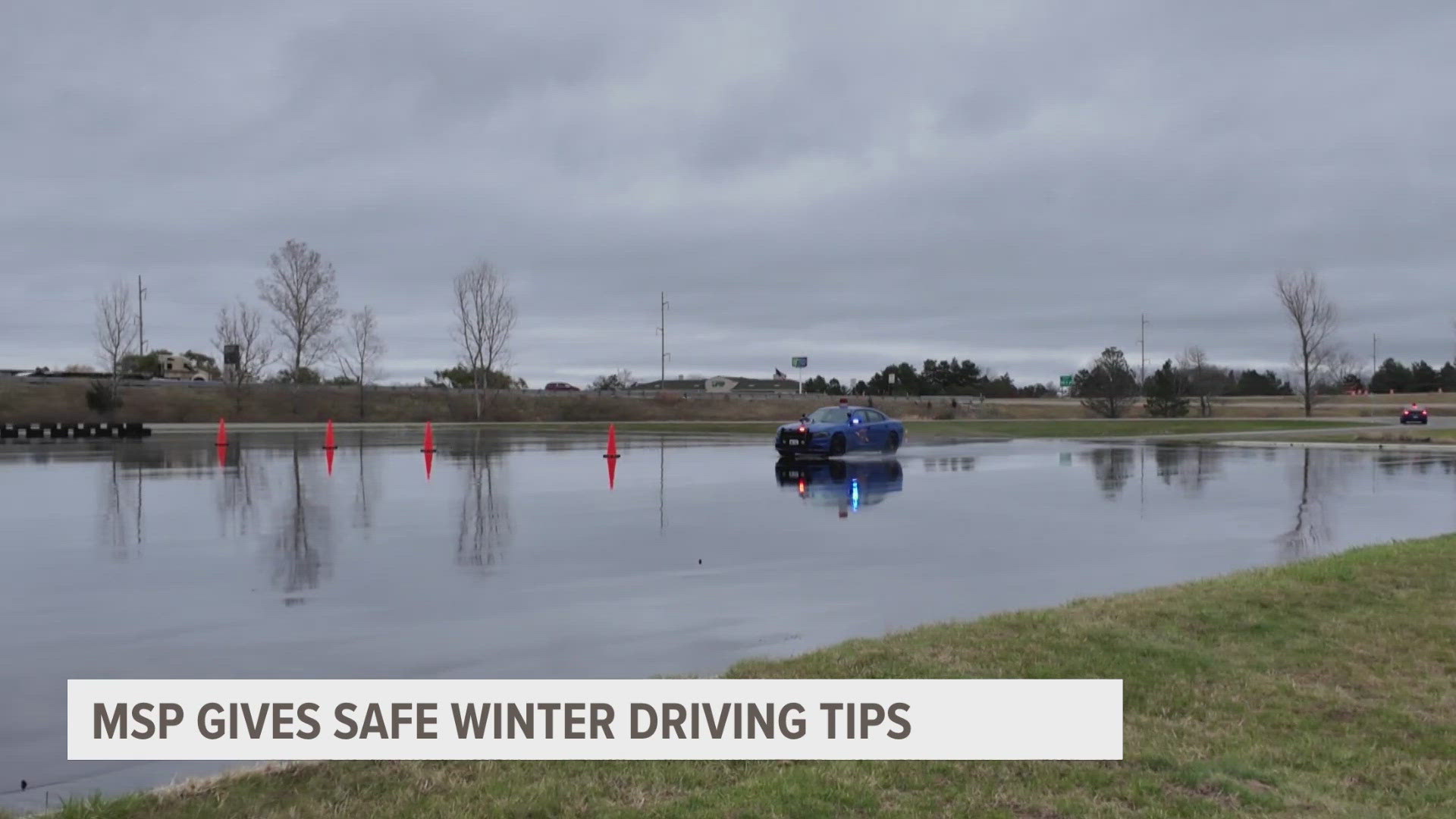Succumbing to the concerns expressed by outside groups representing colleges, municipalities, schools and businesses, the Senate passed a scaled-back version of bills Wednesday aimed at protecting children from sexual assault and expanding penalties.
The bills — born out of the sex abuse scandal involving former MSU sports doctor Larry Nassar and more than 200 girls and young women — will expand the statute of limitations for sex crimes and lift governmental immunity protections for public institutions. But the bills differ significantly from the ones that were initially introduced last month at a news conference filled with Nassar's victims.
"This package of bills delivers justices for the children who have been sexually assaulted," said Sen. Margaret O'Brien, R-Portage, the lead sponsor of the legislation. "Michigan is not a home to pedophiles, it is a place for children. We will protect you, defend you, stand up for you."
As introduced, the statute of limitations for victims of sexual assault would have been 30 years past their 18th birthday for both criminal and civil cases, and for civil cases, it would be retroactive to 1993. But amid intense lobbying from various groups, that provision was changed to a 30-year statute of limitations past the 18th birthday for victims who were minors when the incident occurred and 10 years for victims who were 18 or older when the incident occurred.
The current statute of limitations on sex assault crimes is three years.
And the retroactivity for civil lawsuits would only apply back to 1997 — the year that the first complaint was filed against Nassar — and could be used only by victims who were minors when their assaults occurred. Those victims will only have one year after the bill's effective date to file a retroactive civil lawsuit.
Victims who were 18 or older when their assaults occurred will not be able to civilly sue their abuser retroactively under the amended legislation. It was a compromise that was needed in order to get enough votes for the bill to pass, O'Brien said.
"There was a lot of room that we had to go over and answer a lot of questions. This is good public policy. It's justice," she said. "It's important to know that when we're dealing with retroactivity in civil litigation, we're trying to do the best that we can. We worked to find what would be a good compromise to get the votes to make sure we're protecting our children."
About two dozen victims who gave impact statements during Nassar's sentencing were at least 18 when their assaults occurred. And some of those people may have been included in civil lawsuits filed against Michigan State University
"Anyone who is continuing to litigate with Michigan State, I encourage them to talk with their attorneys. I'm sure they'll have some answers," O'Brien said.
Democrats said they wished the bills would have passed as introduced.
"If it was up to me, we wouldn't have made that change, but this is a long legislative process," said Sen. Curtis Hertel, D-East Lansing. "This is what was needed to get through the Senate today and it was a huge step in the right direction."
While the some of the bills passed unanimously, others passed on votes of 28-7 with some Republicans concerned about the allowance for retroactive lawsuits in the legislation.
Sen. Mike Shirkey,R-Clarklake, said the bills create a dangerous precedent with the retroactivity provisions and also discriminate against victims based on their age.
Those were the areas that most concerned the groups that emerged this week in opposition to some of the bills. They worried that the provisions would open them up to an untold amount of lawsuits with no clear record of evidence of abuse.
The Michigan Catholic Conference said it was still worried about some of the bills.
“Michigan Catholic Conference is grateful the Senate has passed legislation that will protect children and create safer environments in our state," the conference said in a statement. The bill allowing for retroactive lawsuits, "however, is dangerous public policy that will do nothing to protect children today but rather subject a vast portion of the State of Michigan to currently barred civil actions."
That was an excuse that didn't hold water for Democrats.
"I've been very clear from the beginning — the groups who are prioritizing money and liability over the survivors are one of the reasons we got into this situation in the first place," said Sen. David Knezek, D-Dearborn Heights, who sponsored the bill that included the ability to sue retroactively. "We're going to continue to put the survivors first. and give them a voice that they've been denied for so long."
Leslie Miller, mother of Emma Ann Miller, a 15-year-old victim of Nassar, said the legislation passed Wednesday evening goes a long way to ensuring that such cases never happen again.
"This is about combating sexual assault and in order to do that, victims have to have access to the justice system," she said. "True leaders will do what's right to protect children and they'll pass these laws."
She said she was concerned that victims 18 or older wouldn't have the ability to sue their abusers retroactively, "But right now, I want to make sure children are protected. That's my No. 1 thing."
The bills would:
- Extend the statute of limitations for criminal sexual abuse claims to 30 years after a person's 18th birthday. For civil lawsuits, the statute of limitations would be 30 years after their 18th birth if they were minors when the assaults occurred and to 10 years if a person is at least 18.
- Would allow a person to file a civil lawsuit retroactively back to 1997 if the person was a minor when the assault occurred.
- If a victim has a retroactive claim, the person would have until a year after the law becomes effective, to file a claim.
- Increase the penalties for possessing child pornography;
- Expand the number of people who are mandated and at least 18 years old to report complaints of sexual abuse to include coaches, athletic trainers, physical therapists, volunteers and bus drivers, and increase the penalties for failing to report cases.
- Clarify the law to ensure that governmental entities, including universities and colleges, do not have immunity from civil or criminal cases of sexual assault if they knew or should have known of the cases and failed to report those cases to law enforcement.
The bills — SB 871-880 — now move to the House of Representatives for consideration. Some of the same bills have also been introduced in the House, such as expanding the number of people who have to report cases of sexual abuse, and those are expected to pass easily. But lobbying on the other more controversial aspects of the bill will continue and the future of those bills is uncertain.
Contact Kathleen Gray: 313-223-4430, kgray99@freepress.com or on Twitter @michpoligal.


